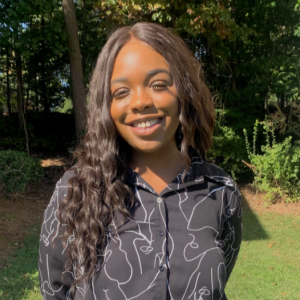In partnership with our parent organization, the International Center for Journalists (ICFJ), IJNet is connecting journalists with health experts and newsroom leaders through a webinar series on COVID-19. The series is part of the ICFJ Global Health Crisis Reporting Forum.
The COVID-19 pandemic had a major impact on the last school year for many students around the world. Now, experts are looking ahead to how ongoing outbreaks will affect education in both the near and distant future.
To discuss how countries around the world are handling education in the face of crisis and important considerations while covering the issue, deputy director of the Education Writers Association (EWA) Eric Robelen led a conversation with Brookings Institution’s Emiliana Vegas; Chika Oduah, an award-winning Nigerian-American journalist; and Antônio Gois, a Brazilian education reporter, consultant and founder of the Brazilian Association of Education Reporters.
The panelists shared trends they’ve observed, insights into how other countries are approaching schooling and advice for journalists.
Gois noted the importance of contextualizing when comparing courses of action from different countries saying, “It's hard to have international references without considering the level of development of each country.”
On how global inequality is exacerbating the inequities in education
Panelists said that inequalities between countries as well as individual students within those countries have influenced national education plans.
Oduah said that Kenya was trying to adopt digital learning but parents weren’t really able to help kids tap into virtual learning or homeschooling. A lack of access to computers also made it infeasible. “So, they pretty much said no school. And this affects 18 million young people across Kenya...This also includes the 150,000 young people living in refugee camps,” she said.
Inaccessibility is an issue in many other parts of the world as well. “...there's also a lot of inequality in how much, even with households that have connectivity, how often and how regularly students are connecting because the situation in households is quite different. So some households may be able to have a device per student, parents who can help, [but] some may have one device that they share across the family and parents may have to use it for work,” Vegas said.
[Read more: Using data to illustrate COVID-19's impact on vulnerable communities]
On innovative methods being deployed worldwide
Some countries have been able to explore innovative virtual and non-virtual teaching methods.
“Virtual learning in Nigeria, Rwanda and Senegal have really been testing the use of robots… And the robots have not yet been deployed into the classrooms, but they're working towards that,” said Oduah.
In Japan, she said, some students were able to use robots to virtually attend their graduation ceremonies this year. “So I think we're going to see a lot of robot activity in the coming months.”
Oduah also said that community radio is being used across Africa. “They're trying to employ community radio programs, sometimes three days a week, for learning, just bringing young people together around the campfire to follow up on the education.”
Vegas said that in Denmark and Finland, schools are experimenting with “pods,” a small group of students and one teacher, as a way to reduce exposure. In this case, if one of them gets infected, then only members of that pod have to stay home instead of shutting down the entire school. “That has proved to be quite effective during the period that they reopened in the spring of last year. They didn’t see a rise in cases,” she said.
[Read more: Juggling parenting and journalism during the pandemic]
Tips on reporting on COVID-19 and education
Gois: “...the problem is that many of the researchers [on COVID-19] that are being published have a lot of limitations that we should be aware of as reporters and report to our audiences… we cannot be pretty confident by looking through the research because the research is brand new.”
Oduah: “Especially in developing countries, it's so important to get on the ground into the communities because the stats at the federal level, it may not be a real portrait of what's happening on the ground.”
Gois: “Something that always bothered me is that it's easy to go to a school and hear the voices of students who are more affluent or less shy, or teachers who are from unions or students who have a strong position against or in favor of something. But there are a lot of students who are shy, who are more invisible, who do not like to talk to journalists, who do not have ways of reaching the media.”
And, Gois said, coverage should center education rather than the public health aspects of the crisis. “We should not ever lose focus on the pedagogical issues, [such as] what will be the strategies that the systems will make to recover learning losses?” he said.
Chanté Russell is a recent graduate of Howard University and a programs intern at the International Center for Journalists.
Main image CC-licensed by Unsplash via Element5 Digital.


